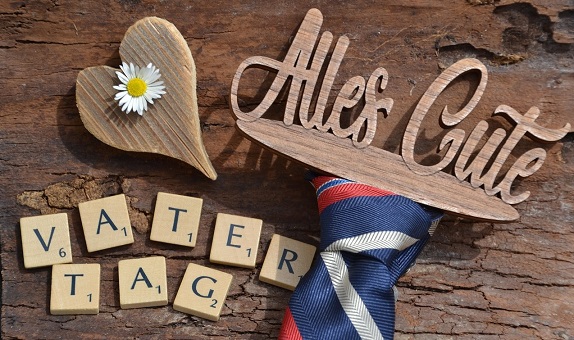
When you hear “Father’s Day,” you might think of gifts, backyard barbecues, or breakfast in bed. But Vatertag, or Father’s Day in Germany, is a completely different experience. Imagine men pulling decorated wagons of beer through the countryside, singing songs, and celebrating with their friends – that’s closer to the German reality.
Observed on Ascension Day, 40 days after Easter, Vatertag is a fascinating blend of religious holiday, social tradition, and male bonding ritual. While it technically honors fathers, it often turns into a celebration of manhood, friendship, and the great outdoors.
In this article, we explore the historical roots of Vatertag, how it’s celebrated today across Germany, and what makes it one of the country’s most unique holidays. Whether you’re curious about its cultural quirks or planning to experience it yourself, this guide will give you everything you need to know.
What Is Vatertag?
Vatertag, or Männertag (Men’s Day), is Germany’s equivalent of Father’s Day – but it’s unlike any other. Celebrated on Ascension Day (Christi Himmelfahrt), which is a public holiday, Vatertag is both a day off work and an opportunity for men to engage in group outings, drink beer, and enjoy nature.
Unlike the more family-oriented versions of Father’s Day in the US or UK, Vatertag is more about male camaraderie than family celebrations. In many regions, it’s seen as a “day for the guys,” with groups of men embarking on hiking trips or wagon tours (Bollerwagentouren), often involving large quantities of beer, schnapps, and hearty food.
While some see it as a fun tradition, others criticize it for promoting excessive drinking. Still, it remains a unique cultural phenomenon rooted in history and local customs.
Origins and Evolution of Vatertag
Religious Roots – Ascension Day
Vatertag coincides with Ascension Day, a Christian holiday commemorating Jesus’ ascension into heaven. Traditionally, German families would attend church services and participate in countryside processions. The rural setting and celebratory mood of the day laid the groundwork for secular traditions to emerge.
The Birth of Männertag
The idea of honoring fathers specifically began in the late 19th century as a parallel to Mother’s Day, but the concept evolved quickly. By the early 20th century, urban groups of men had started organizing hikes with wagons full of beer, food, and musical instruments.
These male-only excursions grew in popularity, especially in eastern and northern Germany, where Vatertag is more commonly referred to as Herrentag (Gentlemen’s Day).
Modern-Day Vatertag Traditions
Today, Vatertag is less about fatherhood and more about masculine celebration. Popular customs include:
- Bollerwagen tours: Groups of men pull wagons filled with drinks and food through parks or along country paths.
- Hiking and biking trips: Some opt for more athletic outings, combining fresh air with socializing.
- Beer gardens and picnics: Outdoor gatherings with barbecue, sausages, and plenty of regional beer.
- Public events: Some towns host Vatertag festivals or open-air concerts.
While not all men participate, and some families now mark the occasion more traditionally with gifts or meals, the holiday still retains a distinctly German tone.
How Germans Celebrate Vatertag Today
Regional Differences
- In Berlin and Brandenburg, Vatertag is widely known as Herrentag, and large groups can be seen walking through forests or parks.
- In Bavaria, celebrations often revolve around beer gardens, traditional dress, and rustic meals like Schweinshaxe (pork knuckle).
- In Saxony and Thuringia, it’s common to see musical instruments, singing, and traditional folk songs accompany the revelry.
Is It Just for Fathers?
Surprisingly, many participants are not fathers at all. Vatertag has evolved into an occasion for men of all ages – single, married, young, or retired – to spend the day outdoors together. It’s often viewed as a form of “gentlemen’s retreat” rather than a celebration of fatherhood per se.
The Female Perspective
As Vatertag is mostly male-centric, some women use the day off for their own get-togethers or “ladies’ brunches.” In recent years, there have been calls to reframe the holiday to include more inclusive, family-focused activities – but traditional Männertag tours remain dominant in many regions.
Public Safety and Controversy
Due to the emphasis on alcohol, police are on high alert during Vatertag. Some areas report spikes in public disturbances or accidents. Efforts have been made to promote responsible celebration, especially around public parks and train stations.
Practical Tips for Experiencing Vatertag
Whether you’re living in Germany or visiting during this holiday, here’s how to make the most of it:
- Expect closures: Ascension Day is a public holiday, so most shops and businesses will be closed.
- Plan outdoor time: Parks and trails will be busy – join a group or pack a picnic and watch the festivities.
- Try regional beer and snacks: Many use the day to enjoy local sausages, pretzels, or even dishes like Bratwurst with Sauerkraut and Potatoes.
- Consider alternatives: Families can also take this opportunity to enjoy a quiet day out, a bike tour, or a relaxed meal.
- Be respectful: If you’re not participating in the drinking culture, enjoy the holiday atmosphere without judgment – it’s part of what makes Vatertag unique.
Vatertag – Father’s Day in Germany is a fascinating holiday that blurs the lines between religious observance, cultural tradition, and modern-day social bonding. From church processions to beer-filled wagons, it reflects both Germany’s rich heritage and its evolving attitudes toward masculinity and celebration.
Whether you’re curious about German traditions or planning to join a Bollerwagentour, Vatertag offers a window into how Germans work, play, and connect.
For more on German holidays, check out:
